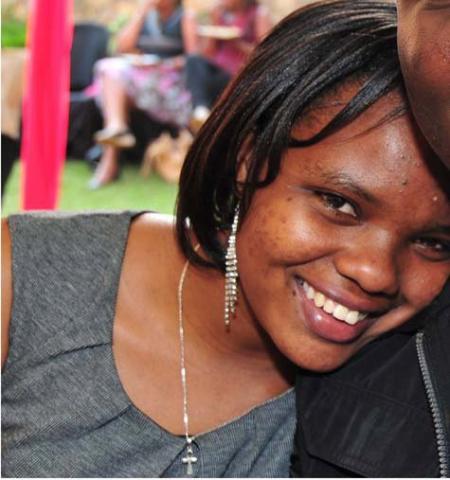6 things that loss and grief has taught me.
Mar 14,2017
Through loss, I have learnt that it takes some time to adjust and learn to live life without that person and it is okay.There is no right way or wrong way to grieve and it can take a lot of time and support to heal.It is okay to know that:
- There is no right or wrong time frame for grieving. How long it takes can differ from person to person and how close they were to their loved ones.It can take months or years but the key thing is to ensure that you do not sink into depression.
- You should allow yourself to feel sad.Grief is a natural response to the loss of someone you loved and you shouldn’t feel guilty for being sad.Write a journal to express those painful feelings.You might be surprised how quickly healing and acceptance comes through.
- Express your feelings in a creative way like gym, running or starting a new hobby and avoid things that numb the pain.e.g. Alchohol.This will help you move from one stage to another and avoid self-destruction.
- Let people help.It is good to ask for help. You don’t need to put a brave face in the presence of your family and friends to show how well you are dealing with the loss.Letting them see your vulnerability and asking for help will go a long way in accelerating your healing process.
- Be prepared for stressful or sad events.There will be events and situations that remind you of your loss can be particularly hard to deal with. For example, people who have lost parents, in particular, find it hard during Christmas and other holidays as these are times when people spend time with family.
- Go to counselling if it grief overwhelms you. IGrieving for a long time can put you in physical, mental and emotional health risk. If grief starts to affect the way you live, your work, relationships, or day-to-day life then you need to get support or professional help.
There are 5 stages of loss and grief:
1. Denial and Isolation
The first reaction to learning of terminal illness or death of a cherished loved one is to deny the reality of the situation. It is a normal reaction to rationalise overwhelming emotions. It is a defence mechanism that buffers the immediate shock. We block out the words and hide from the facts. This is a temporary response that carries us through the first wave of pain.
2. Anger
As the masking effects of denial and isolation begin to wear, reality and its pain re-emerge. We are not ready. The intense emotion is deflected from our vulnerable core, redirected and expressed instead as anger. The anger may be aimed at inanimate objects, complete strangers, friends or family. Anger may be directed at our dying or deceased loved one. Rationally, we know the person is not to be blamed. Emotionally, however, we may resent the person for causing us pain or for leaving us. We feel guilty for being angry, and this makes us angrier.
Remember, grieving is a personal process that has no time limit, nor one “right” way to do it.
The doctor who diagnosed the illness and was unable to cure the disease might become a convenient target. Health professionals deal with death and dying every day. That does not make them immune to the suffering of their patients or to those who grieve for them.
3. Bargaining
The normal reaction to feelings of helplessness and vulnerability is often a need to regain control–
- If only we had sought medical attention sooner…
- If only we got a second opinion from another doctor…
- If only we had tried to be a better person toward them…
Secretly, we may make a deal with God or our higher power in an attempt to postpone the inevitable. This is a weaker line of defence to protect us from the painful reality.
4. Depression
Two types of depression are associated with mourning. The first one is a reaction to practical implications relating to the loss. Sadness and regret predominate this type of depression. We worry about the costs and burial. We worry that, in our grief, we have spent less time with others that depend on us. This phase may be eased by simple clarification and reassurance. We may need a bit of helpful cooperation and a few kind words. The second type of depression is more subtle and, in a sense, perhaps more private. It is our quiet preparation to separate and to bid our loved one farewell. Sometimes all we really need is a hug.
5. Acceptance
Reaching this stage of mourning is a gift not afforded to everyone. Death may be sudden and unexpected or we may never see beyond our anger or denial. It is not necessarily a mark of bravery to resist the inevitable and to deny ourselves the opportunity to make our peace. This phase is marked by withdrawal and calm. This is not a period of happiness and must be distinguished from depression.
Loved ones that are terminally ill or ageing appear to go through a final period of withdrawal. This is by no means a suggestion that they are aware of their own impending death or such, only that physical decline may be sufficient to produce a similar response. Their behaviour implies that it is natural to reach a stage at which social interaction is limited. The dignity and grace shown by our dying loved ones may well be their last gift to us.
Coping with loss is an ultimately a deeply personal and singular experience — nobody can help you go through it more easily or understand all the emotions that you’re going through. But others can be there for you and help comfort you through this process. The best thing you can do is to allow yourself to feel the grief as it comes over you. Resisting it only will prolong the natural process of healing.
Whichever stage you are in, be encouraged.It shall be well.
This article first appeared here https://wairimumahinge.wordpress.com/2016/02/02/6-things-that-loss-and-grief-has-taught-me/






